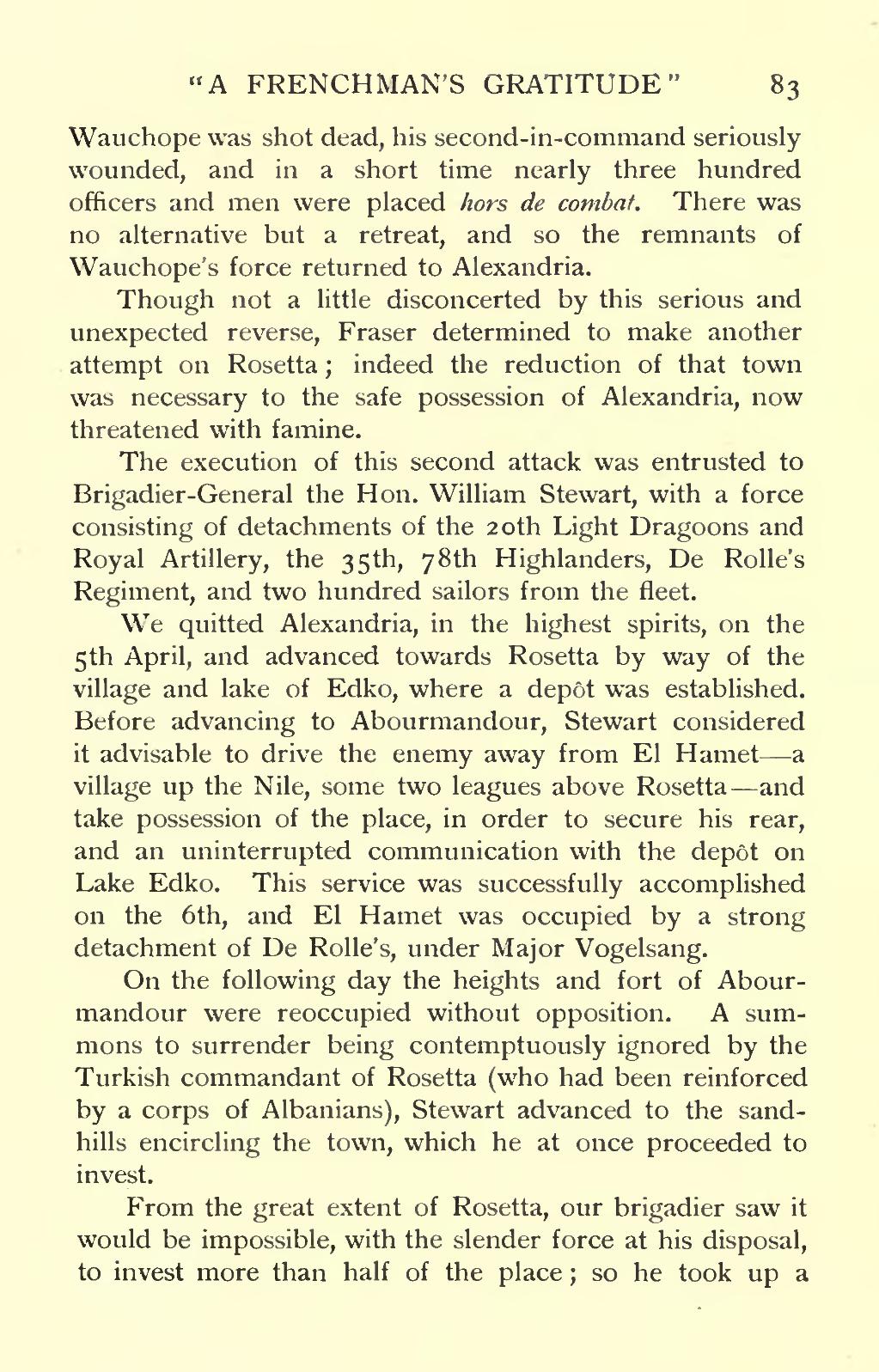Wauchope was shot dead, his second-in-command seriously wounded, and in a short time nearly three hundred officers and men were placed hors de combat. There was no alternative but a retreat, and so the remnants of Wauchope's force returned to Alexandria.
Though not a little disconcerted by this serious and unexpected reverse, Fraser determined to make another attempt on Rosetta; indeed the reduction of that town was necessary to the safe possession of Alexandria, now threatened with famine.
The execution of this second attack was entrusted to Brigadier-General the Hon. William Stewart, with a force consisting of detachments of the 20th Light Dragoons and Royal Artillery, the 35th, 78th Highlanders, De Rolle's Regiment, and two hundred sailors from the fleet.
We quitted Alexandria, in the highest spirits, on the 5th April, and advanced towards Rosetta by way of the village and lake of Edko, where a depôt was established. Before advancing to Abourmandour, Stewart considered it advisable to drive the enemy away from El Hamet—a village up the Nile, some two leagues above Rosetta—and take possession of the place, in order to secure his rear, and an uninterrupted communication with the depôt on Lake Edko. This service was successfully accomplished on the 6th, and El Hamet was occupied by a strong detachment of De Rolle's, under Major Vogelsang.
On the following day the heights and fort of Abourmandour were reoccupied without opposition. A summons to surrender being contemptuously ignored by the Turkish commandant of Rosetta (who had been reinforced by a corps of Albanians), Stewart advanced to the sandhills encircling the town, which he at once proceeded to invest.
From the great extent of Rosetta, our brigadier saw it would be impossible, with the slender force at his disposal, to invest more than half of the place; so he took up a
